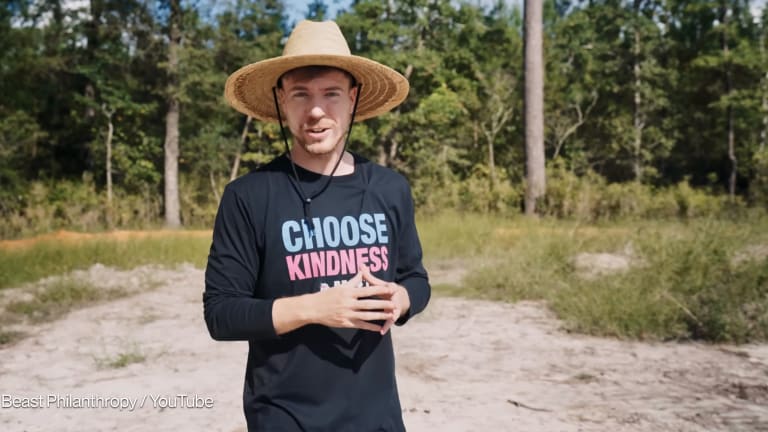
By day, Drew Reyes-Schroeder is director of digital operations at Direct Relief, an emergency medical assistance and disaster relief organization.
But in video game circles, he’s known as romscout and specializes in “speedrunning,” or completing games as fast as possible, often for a virtual audience from among his 30,000-plus followers on livestreaming platform Twitch.
His two worlds converged this summer as he helped manage Direct Relief’s partnership with Gamers Without Borders, which bills itself as the world’s largest charity event for esports and gaming.
Now in its second year, Gamers Without Borders is bringing together top esports athletes and teams in head-to-head matches to support global vaccine distribution, with viewers in different parts of the world watching on Twitch and YouTube. They are competing for a share of the $10 million charity prize fund, and winners can select whether to support Direct Relief; UNICEF; Gavi, the Vaccine Alliance; or International Medical Corps. The virtual festival, which is themed “No One Left Behind,” ends Sunday.
A Globaldev Guide to New Social Media
Learn more about how global development organizations are navigating the new social media era with Devex's latest special report.
Prior to joining Direct Relief, Reyes-Schroeder was events director at Games Done Quick, which organizes video game marathons featuring speedrunners raising money for charity. He then launched and led charity partnerships at Twitch. He knows firsthand that many gamers want to leverage their skills, platforms, and followers to make an impact on causes they care about.
“A lot of the early years was outreach from gamers towards nonprofits that had no idea what was going on,” he said. Direct Relief has raised $15.5 million via gaming since 2011, with the involvement of both individual broadcasters and gaming companies.
Now, nonprofits are increasingly developing strategies to engage captive virtual audiences and raise money for their causes through gaming fundraisers. Gamers Without Borders is raising the bar in terms of how much money gaming events can generate. From individual gamers launching digital fundraisers on interactive fundraising platform Tiltify to charity gaming marathons such as Zeldathon and Pokéthon, gaming fundraisers are providing new ways for nonprofits to reach the 2.7 billion gamers worldwide.
Bringing gamers together
Gamers Without Borders is the Saudi Arabian government’s take on bringing the thrill of live esports — which can sell out arenas, with tens of thousands of people watching professional gamers play — to the virtual world.
Prince Faisal bin Bandar bin Sultan, a longtime gamer and head of the Saudi Arabian Federation for Electronic Sports, or SAFEIS, is working to make Saudi Arabia a global gaming hub.
In early 2020, he was planning an esports event when it became clear that the COVID-19 pandemic would make such a massive indoor gathering impossible.
Instead, his organization, which is also known as Saudi Esports Federation, or SEF, decided to bring together members of the international gaming community and offer prize funding for the COVID-19 response. That’s how Gamers Without Borders was born.
“Gaming is something people relied on to be connected,” said Omar Batterjee, SEF’s head of communications, marketing, and partnerships. “SEF decided to use it as a vehicle to connect gamers from around the world.”
SEF recruited esports athletes and teams and asked them to play each other, donating what they won from the prize pool to charities of their choice from a preselected list. They developed a virtual studio featuring games, talk shows, and concerts. Then, SEF broadcast games such as Fortnite, FIFA, and PUBG Mobile live in a handful of languages, giving a total of $10 million to nonprofit organizations involved in the COVID-19 response.
Moving forward, Batterjee said, the goal is for Gamers Without Borders to become “a humanitarian brand” that does good and provides entertainment at the same time.
“When they [fundraising gamers] have direct interaction with nonprofits like us, they are able to get much better information, become really well educated about the topic, and they’ll speak from the heart about it.”
— Drew Reyes-Schroeder, director of digital operations, Direct ReliefHow gamers get viewers to give
Direct Relief’s first experience with gaming for charity was Zeldathon, a charity marathon livestreamed on Twitch that brings people together to play games from the series The Legend of Zelda. Zeldathon has raised nearly $3 million since it launched in 2009.
In 2016, Direct Relief brought on Matthew “MC” Moffit and Brooke “Kampy” Malone, two gamers behind Zeldathon, as consultants. They helped set the strategy behind Direct Relief Gaming, which provides resources to gamers interested in raising funds for the nonprofit organization. Even the head of Direct Relief is involved in fundraising from gaming; in a past Zeldathon, CEO Thomas Tighe took a pie to the face.
Typically, gamers raising money for charity do far more than asking their viewers to donate money, Reyes-Schroeder told Devex.
“They interact with their stream, there’s a chat that’s active the entire time, and a lot of time they’ll come up with incentives that directly affect the content people are watching live,” he said. For example, gamers might allow viewers to manipulate the game with an interactive tool called Crowd Control that lets them pay to lengthen or shorten game time or to gift in-game items, such as armor or potions in The Legend of Zelda.
“They also speak very passionately about the cause,” Reyes-Schroeder said of participating gamers. “So when they have direct interaction with nonprofits like us, they are able to get much better information, become really well educated about the topic, and they’ll speak from the heart about it.”
The more viewers that gamers have in a livestream, the more potential donors they reach. They can use on-screen trackers, shoutouts, and other incentives to encourage donations, which are then given to one or several nonprofits.
A ‘key and growing sector’
Most viewers who follow Gamers Without Borders watch events where professional teams, such as Ninjas in Pyjamas, play competitively on Twitch.
But esports is just one genre of gaming fundraisers. Individual creators such as MsAshRocks, whose community of followers is called the RockSquad, are behind the majority of charity fundraising on Twitch.
“The magic or secret sauce, so to speak, for charitable fundraising on Twitch is the community element you cannot find anywhere else. You’re not just donating to a charity, you are working together to create a bigger impact. The creator often offers up incentives to their community from eating silly things to doing the latest dance moves on stream,” wrote Alyssa Sweetman, director of creator social impact at Twitch, in an email to Devex.
Twitch is seeing massive growth in charitable fundraising on its platform each year, with $110 million raised for charities in 2020 — nearly double the amount raised in 2019.
Nonprofits that invest in a dedicated influencer fundraising program manager are more likely to be successful in building direct relationships with the 7 million creators on the Twitch platform, Sweetman said.
Reyes-Schroeder said gaming provides an effective way for nonprofits to reach out to people in his generation who “are really into action-based philanthropy,” referencing a study by the Blackbaud Institute on health care donors by generation.
These games target COVID-19 misinformation. But do they work?
Games are a lighthearted alternative to news fact checks, but do they work to debunk or prebunk COVID-19 misinformation?
For other nonprofits, Gamers Without Borders was the beginning of their journey in raising money from the gaming world. UNICEF got nearly $4 million from Gamers Without Borders in 2020 in support of its COVID-19 emergency response, and the agency is participating again in 2021.
From a fundraising perspective, the gaming industry is “a key and growing sector,” Jorge Olague, deputy director of the private sector fundraising and partnerships division at UNICEF, told Devex in an email.
But online activities, including gaming, present both opportunities and risks for children, he said, noting that UNICEF in 2020 produced recommendations for ways the gaming industry can respect and promote children’s rights.
“We decided to partner on GWB because this event reaches an audience we want to talk to, and was an opportunity to disseminate very important messages, while raising funds for a top priority this year: making access to vaccines more equitable,” Olague said. “The partnership with SAFEIS provided UNICEF with an effective fundraising opportunity, and at the same time a platform to reach young people and tap into the spirit of gamers – who are intrepid explorers, who like to collaborate and aren’t afraid of failing and trying again.”




